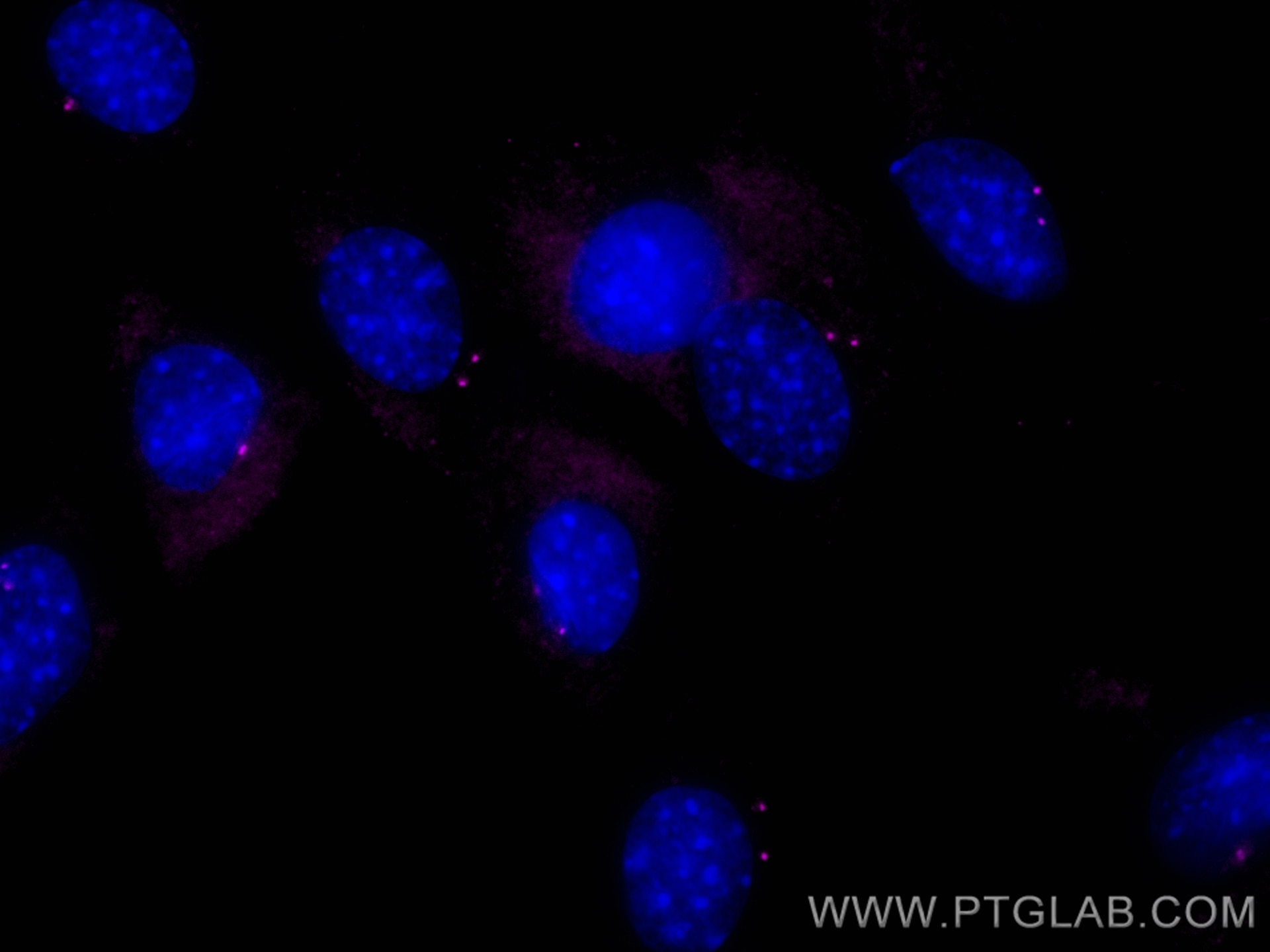- Featured Product
- KD/KO Validated
CoraLite® Plus 647-conjugated FGFR1OP Polyclonal antibody
FGFR1OP Polyclonal Antibody for IF
Host / Isotype
Rabbit / IgG
Reactivity
human, mouse, rat
Applications
IF
Conjugate
CoraLite® Plus 647 Fluorescent Dye
Cat no : CL647-11343
Synonyms
Validation Data Gallery
Tested Applications
| Positive IF detected in | C2C12 cells |
Recommended dilution
| Application | Dilution |
|---|---|
| Immunofluorescence (IF) | IF : 1:200-1:800 |
| It is recommended that this reagent should be titrated in each testing system to obtain optimal results. | |
| Sample-dependent, Check data in validation data gallery. | |
Product Information
CL647-11343 targets FGFR1OP in IF applications and shows reactivity with human, mouse, rat samples.
| Tested Reactivity | human, mouse, rat |
| Host / Isotype | Rabbit / IgG |
| Class | Polyclonal |
| Type | Antibody |
| Immunogen | FGFR1OP fusion protein Ag1891 |
| Full Name | FGFR1 oncogene partner |
| Calculated Molecular Weight | 43 kDa |
| Observed Molecular Weight | 50 kDa |
| GenBank Accession Number | BC011902 |
| Gene Symbol | FGFR1OP |
| Gene ID (NCBI) | 11116 |
| RRID | AB_2920217 |
| Conjugate | CoraLite® Plus 647 Fluorescent Dye |
| Excitation/Emission Maxima Wavelengths | 654 nm / 674 nm |
| Form | Liquid |
| Purification Method | Antigen affinity purification |
| Storage Buffer | PBS with 50% Glycerol, 0.05% Proclin300, 0.5% BSA, pH 7.3. |
| Storage Conditions | Store at -20°C. Avoid exposure to light. Aliquoting is unnecessary for -20oC storage. 20ul sizes contain 0.1% BSA. |
Background Information
The fibroblast growth factor receptor 1 oncogene partner (FGFR1OP), FOP, is a centrosomal protein that is involved in the anchoring of microtubules to subcellular structures. Three isoforms have been produced by alternative splicing. A chromosomal aberration involving FGFR1OP may be a cause of stem cell myeloproliferative disorder (MPD). MPD is characterized by myeloid hyperplasia, eosinophilia and T-cell or B-cell lymphoblastic lymphoma and progresses to acute myeloid leukemia.
Protocols
| Product Specific Protocols | |
|---|---|
| IF protocol for CL Plus 647 FGFR1OP antibody CL647-11343 | Download protocol |
| Standard Protocols | |
|---|---|
| Click here to view our Standard Protocols |


